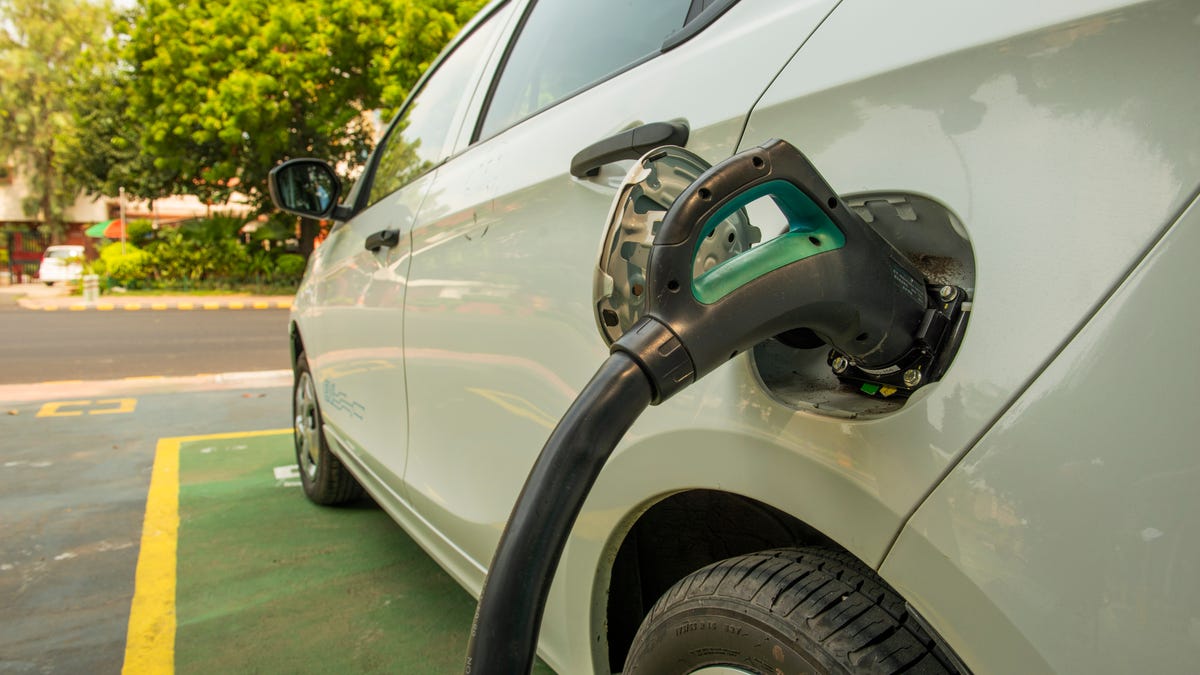Why You Shouldn’t Buy a Used Electric Car Just Yet

Everything is more expensive these days, and one of the most glaring examples of inflation is the used car market, where prices have risen by 40% in just a few years. Once upon a time, you could reliably find an affordable beater that would get you to and from work for a while, but that’s no longer the case.
However, if you can’t afford a new car, you’ll have to look for a used one. And you might think you can get ahead of the competition (and maybe save some money) if you buy a used electric vehicle (EV). Electric vehicles on average cost less to fuel and maintain, and you could potentially qualify for a federal tax credit of up to $4,000 . Plus, electric cars depreciate faster than internal combustion engine cars, so your chances of finding a good deal are slightly higher.
These are all good reasons to consider a used electric car. But the used electric vehicle market is just starting to take off, so a little caution is necessary. There will come a time when buying a used electric car is a smart move, but that time isn’t there yet. That’s why you should consider sticking with old-fashioned gas-powered hybrids right now and leaving the EV adventures to future you.
Navigating the used electric vehicle market is difficult.
The first thing to consider is that the used EV market is a weird one. Only about 1% of all cars on the road today are electric vehicles, which means that many electric cars on the road today are still owned by their original owners, and many of the models you can buy used will become obsolete. Early models such as the Nissan Leaf can be found at relatively low prices, but electric vehicle technology has advanced rapidly and these older models lack many basic features such as cooling systems that extend the life of their batteries. This means that you could buy a super-cheap electric car that’s only about a decade old and find that it’s more or less unusable in any practical sense , especially compared to a gasoline car of a similar year.
On the other end of the weirdness spectrum are later model EVs that are actually more expensive than new . Due to supply chain issues and a drop in production of new models, people are actually selling their EVs for a profit. About 17.5% of the used electric vehicle market consists of vehicles that are just three years old and cost almost as much as a new car, if not more. You can still find a relatively good deal on the used electric car market, but you’ll have to wade through a stream of cheap but broken cars and overturned cars to find them. This is a fairly volatile market, and avoiding such chaos for the relative stability of a gasoline car is a good idea.
Older electric cars may experience battery problems
Another reason you might want to wait to buy a used EV is that it has the same limitations as new EVs, but worse:
- Lack of charging stations. Depending on where you live, finding a place to charge your electric vehicle can be a challenge. Due to the lack of infrastructure and the fragility of many chargers, keeping your car running is not always easy. And this is especially problematic for used electric vehicles due to their…
- Less battery capacity. Electric vehicle batteries lose up to 10% of their capacity in the first five years and about 2.3% on average annually. This is expected, and the battery will still power the car reasonably well even if it degrades significantly—EV batteries typically come with an 8-year/100,000-mile warranty. But if the battery in your used EV only gives you a relatively short range (keeping in mind that dashboard range predictions are notoriously inaccurate ), a lack of charging stations will make the problem worse, and replacing an EV battery can cost more than $10,000. . None of this applies to gasoline-powered vehicles.
Electric cars are incredible technological advancements, and one day, very soon, buying a new or used car will be an easy task. However, right now, if you are looking for a used car, you will avoid a long list of problems by purchasing a car with an internal combustion engine.